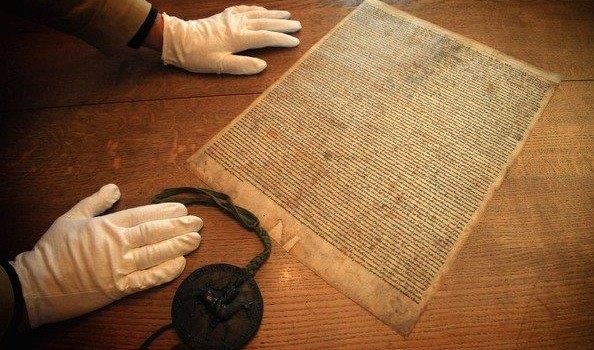15th June 2015
Politics and power: Why the Magna Carta is still a burning issue
A bunch of English barons challenge the King for power and seize London. To make peace, the King agrees a legal document. But he then asks the Pope repeal it – which the Pope does, declaring it “null and void of all validity forever”. War erupts; the King dies; and a nine-month-old boy becomes head of state.
All this happened in 1215 – 800 years ago. Why should anyone care – in Britain, Turkey or anywhere else?
The reason people still get excited about the Magna Carta – of which 15 June marks the 800th anniversary – is that the burning issues that bothered the Barons in 1215 are still vital for people fighting for democracy today.
The key question is: can the authorities in a country do whatever they want? Or are they constrained by law? In England in 1215 people were worried about the ability of the King to curtail individual rights; and the lack of due legal process in convicting individuals of crimes against the Crown. Both remain relevant to the relationship between citizens and the authorities today, in every country in the world.
To quote the National Trust web-site: “Magna Carta was special because it held the king accountable to the rule of law, just like his subjects.” The jurist Bracton wrote in the 13th Century: “in England the king is below God and below the law”.
Clause 39 of the Magna Carta states that no man shall be arrested, imprisoned or dispossessed without judgement of his peers or against the law of the land. In agreeing to it, King John had to accept that his subjects were citizens, and to give them rights, protections and security.
Thus, despite its discouraging start, in the centuries since 1215 the Magna Carta has come to be seen as a key document in the development of democracy and the rule of law.
The UK cares about this because we believe that democracy, human rights and the rule of law are essential to peaceful, resilient and prosperous societies. Imagine a society run on the opposite principles.
That is why the UK exchanges ideas with partner countries all around the world – whether with the United States about the death penalty or Ukraine on the rule of law – to help all of us build the strongest democracies and systems of government that we can. That doesn’t mean we think we’re perfect: pick up any British newspaper for a full account of how self-critical the UK can be.
But it does mean we recognise that in all countries, including the UK and Turkey, democracy rests on foundations that have to be built and maintained over time – see my blog “Turkey 2023; why the UK welcomes Turkish success”.
King John lived for just four months after “sealing” the Magna Carta (not “signing” – he could not read or write) . The legacy of the Magna Carta lives on, 800 years later.
PS: if you think that there is a secret agenda behind all this and that shadowy organisations are seeking to impose the values of the Magna Carta on other countries in order to somehow weaken them, see my blog “James Bond, conspiracy theories and the Welsh secret service”. If you have always thought the world was run by shadowy all-powerful forces but never had the evidence, I reveal the truth in that blog.
